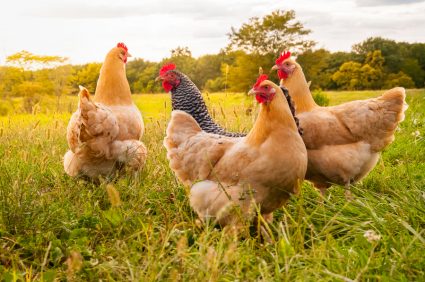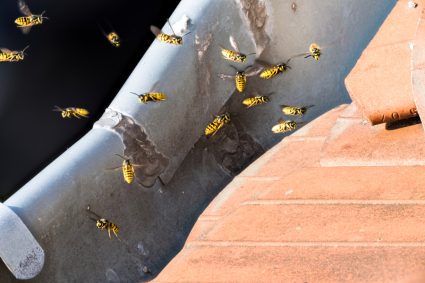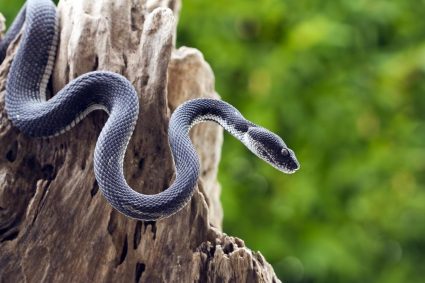
Gardening can be a rewarding pastime, but it can also come with its fair share of challenges. One of the most common issues faced by gardeners is dealing with unwanted visitors, particularly deer and rabbits, who seem to find our gardens as appealing as we do. But what if you could plant something that would not only add to the beauty of your garden but also keep these critters at bay? This comprehensive guide will explore the various plants that can deter deer and rabbits, and how to integrate them into your existing garden landscape.
Deer and rabbits are often deterred by plants with strong scents or unappetizing textures. Some plants that can help keep these animals out of your garden include chives, daffodils, lamb’s ear, marigolds, Russian sage, bee balm, oregano, peonies, foxgloves, and snowdrops. However, the effectiveness of these plants can vary based on location and specific wildlife in your area.
Plants That Deter Deer and Rabbits
Deer and rabbits have a keen sense of smell and are usually deterred by plants with strong scents. They also have specific textures they find unappetizing. Here are some top plants that can help keep these animals out of your garden:
- Chives: Both deer and rabbits dislike the strong smell of this herb.
- Daffodils: These flowers are toxic to deer and rabbits, so they tend to avoid them.
- Lamb’s ear: The fuzzy texture of these leaves is unappealing to deer and rabbits.
- Marigolds: The strong scent of these flowers can deter both deer and rabbits.
- Russian sage: This plant’s pungent aroma and fuzzy texture make it unattractive to both deer and rabbits.
- Bee balm: Known for its strong scent and bright flowers, this plant is not a favorite of deer or rabbits.
- Oregano: This herb’s strong aroma can deter deer and rabbits.
- Peonies: Both deer and rabbits tend to avoid these flowers due to their strong scent.
- Foxgloves: The toxic leaves of this plant are a deterrent for deer and rabbits.
- Snowdrops: These flowers are poisonous to both deer and rabbits.
Remember, no plant is entirely deer or rabbit-proof. The effectiveness of these plants can vary based on location and the specific wildlife in your area.
Factors That Make These Plants Unappealing
Certain characteristics make these plants unappealing to deer and rabbits. These include:
- Strong fragrance: Deer and rabbits have sensitive noses and are deterred by strong scents.
- Fuzzy or hairy leaves: The texture of these plants is unappetizing to deer and rabbits.
- Spiny or prickly texture: These plants are difficult for deer and rabbits to eat.
- Toxic compounds: Some plants contain toxins that are harmful to deer and rabbits.
Planting and Maintenance
Most of these plants are easy to grow and maintain for the average gardener. They require basic care such as regular watering, plenty of sunlight, and well-draining soil. Remember to research each plant’s specific needs to ensure they thrive in your garden.
Integrating These Plants Into Your Garden Landscape
To incorporate these plants into your garden without disrupting its aesthetic, consider the following strategies:
- Use native plants: These plants have evolved to thrive in your region, making them hardy and low maintenance.
- Plan your planting: Mix structural plants with flowering ones to create visual interest.
- Use color and texture: Different colors and textures can create a visually appealing garden.
- Create garden rooms: Use raised beds or planters to divide your garden into different sections.
Other Preventative Measures
Combining these plants with other preventative measures can create a more comprehensive solution to keeping deer and rabbits away. These measures include fencing, using repellents, encouraging natural predators, using scare tactics, and maintaining cleanliness in your garden.
It’s also important to rotate your repellent methods to prevent deer and rabbits from becoming accustomed to one method.
Potential Drawbacks
While these plants can deter deer and rabbits, they may also have potential drawbacks. Some plants may be invasive, harmful to other animals, or require high maintenance. Always research plants thoroughly before introducing them to your garden.
Conclusion
While no solution is foolproof, employing a multi-pronged approach can help keep your garden safe from deer and rabbits. By incorporating deer and rabbit deterrent plants and using other preventative measures, you can protect your garden and enjoy the fruits of your labor.
Remember, the key to a successful garden is planning, patience, and a bit of trial and error. Happy gardening!
Frequently Asked Questions
What other herbs can be used to deter deer and rabbits?
Other herbs that can deter deer and rabbits include Mint, Thyme, and Rosemary. These herbs have strong scents that are unappealing to these animals.
How often should I rotate my repellent methods?
It’s recommended to rotate your repellent methods every few weeks. This helps to prevent deer and rabbits from becoming accustomed to one method.
Can these plants also deter other pests from my garden?
While these plants are specifically known for their ability to deter deer and rabbits, some may also deter other pests. For example, Marigolds are known to repel a variety of insects.
What are some natural predators of deer and rabbits that I can encourage in my garden?
Natural predators of deer and rabbits include foxes, coyotes, and birds of prey. You can encourage these predators by providing them with natural habitats such as birdhouses or brush piles.
Are there any non-toxic plants that can deter deer and rabbits?
Yes, many plants with strong scents or unappealing textures, like Marigolds, Chives, and Lamb’s ear, can deter deer and rabbits without being toxic.










